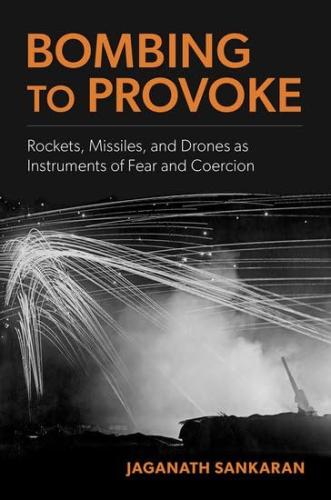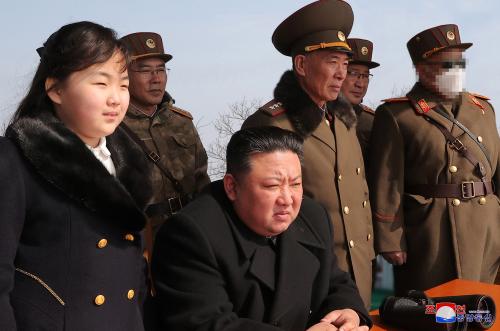Charles L. “Jack” Pritchard, the former Bush administration special envoy for negotiations with North Korea, said Thursday at a briefing at the Brookings Institution that the North Korean government believes “it is important to develop a relationship with the United States and, in that regard, they are prepared to give up their nuclear program.”
Pritchard, speaking publicly for the first time since he returned earlier this week from North Korea as part of an unofficial U.S. delegation, traveled with Stanford University Scholar John L. Lewis, Siegfried Hecker, a nuclear expert and former director of the Los Alamos National Laboratories (who remains on contract to the Department of Energy), and two aides to Senators Richard G. Lugar (R-Ind.) and Joseph R. Biden, Jr. (D-Del.), both of whom are on the Senate Foreign Relations Committee.
During his visit, Pritchard met with North Korean Vice Foreign Minister Kim Kye Gwan and was briefed by a member of the Committee for the Promotion of International Trade on efforts to allow elements of a market economy.
While there, Pritchard visited a nuclear facility in Yongbyon, although he declined to comment extensively on what he had seen, having agreed with the delegation to refer all queries to Hecker’s upcoming testimony before the Senate Foreign Relations Committee on Tuesday.
“The only piece of information I will give you today,” said Pritchard, ” is that the spent fuel facility—the storage pond—was empty.” North Korea previously claimed to have reprocessed sufficient plutonium for half a dozen nuclear weapons.
“I can’t tell you where the rods are. I didn’t see where they went and I cannot speculate,” Pritchard said.
Yongbyon’s reprocessing center was not functioning at the time of Pritchard’s visit, although a five-megawatt reactor was operational. During the delegation’s visit, and during Pritchard’s meeting with Vice Foreign Minister Kim, government officials repeatedly denied ever having a program to enrich uranium.
During Pritchard’s last visit to North Korea in October 2002, some members of the U.S. delegation he was with claimed to have overheard North Korean officials admitting to such a program.
“I don’t backtrack on what I heard in October,” said Pritchard. “I continue to believe that they do have a highly enriched uranium program?It didn’t matter whether they admitted it or not.”
Pritchard’s discussions with Kim centered around the possibility of future six-party talks that would involve North Korea, South Korea, Japan, China, Russia, and the United States. The Bush administration has consistently demanded a “complete, irreversible, and verifiable” dismantling of North Korea’s nuclear program and has thus far refused to deal directly with North Korea or offer any concessions besides an assurance not to attack the country.
“They didn’t really care what the format was, as long as they were able to have a serious and substantive discussion with the U.S.,” said Pritchard, although he admitted that some Korean officials were “somewhat miffed and bemused by the inability to have a conversation with the United States.”
After ousting U.N. inspectors a year ago, North Korea declared that they would begin reprocessing 8,000 spent fuel rods. Recently, however, Pyongyang offered to suspend their nuclear program in exchange for compensation.
Pritchard told Kim that they had packaged their offer “in a way that was unacceptable to the U.S. That is, they asked for removal from the terrorism list, the removal of the remaining sanctions, and they demanded an energy package in return for the heavy fuel oil that had been provided by the agreed framework…These were not related to the overall problem. Whether or not that sunk in, I don’t know.”
Sook-Jong Lee, a visiting fellow at the Brookings Center for Northeast Asian Policy Studies, worried that the North Korean issue threatened to dismantle the valuable alliance between the United States and South Korea. She cited a South Korean poll in which most people felt that the United States posed a greater threat than North Korean President Kim Jong-Il.
“The United States has been the key ally of South Korea,” said Lee, “but all these recent events and incidents make many Koreans begin to see the United States as threatening, and I think there is a very dangerous decline in supporting and believing the United States’s commitment to South Korea.”
Lee cited the deployment of South Korean troops to Iraq and the recent death of Kee Kyeong-sun—a South Korean woman killed by a U.S. soldier in a hit-and-run—as disturbing events for South Koreans.
Brookings Senior Fellow Richard C. Bush, director of the Center for Northeast Asian Policy Studies, said that China, which has been skeptical of U.S. policy in that region, should “remain committed to the process” and added that “it’s important in terms of China’s own national interest because if [the North Korean situation] spins out of control, it will spin over to China.”
All of the panelists agreed that the situation needed to be addressed quickly before North Korea’s nuclear threat escalated. Two six-party talks in Beijing last year yielded few results, but China is working to initiate another round of discussions.
For South Korea, according to Lee, “it is better to solve this nuclear crisis as soon as possible not because of an invasion possibility or a nuclear threat from the north to the south, but because it is damaging to the South Korean-United States alliance.”
Pritchard said that although North Korea is willing to disarm, they “have a genuine concern about the United States and want the U.S. to believe that they have a deterrent capability in the form of a nuclear weapons program.”
Pritchard quoted Vice Minister Wong, who said during Pritchard’s visit that, “Time is not on the United States’s side. The lapse of time will result in the quantitative and qualitative increase in our nuclear deterrent.”



Commentary
Op-edEvent Summary: The North Korea Deadlock: A Report from the Region
January 15, 2004